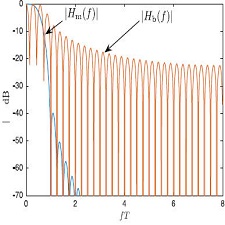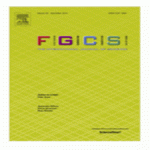توضیحات
ABSTRACT
The evaluation of subjective data is a very demanding task. The classification of the information gathered from human evaluators and the possible high noise levels introduced are ones of the most difficult issues to deal with. This situation leads to adopt individuals who can be considered as experts in the specific application domain. Thus, the development of Expert Systems (ES) that consider the opinion of these individuals have been appeared to mitigate the problem. In this work an original methodology for the selection of subjective sequential data for the training of ES is presented. The system is based on the arrangement of knowledge acquired from a group of human experts. An original similarity measure between the subjective evaluations is proposed. Homogeneous groups of experts are produced using this similarity through a clustering algorithm. The methodology was applied to a practical case of the Intelligent Transportation Systems (ITS) domain for the training of ES for driving risk prediction. The results confirm the relevance of selecting homogeneous information (grouping similar opinions) when generating a ground truth (a reliable signal) for the training of ES. Further, the results show the need of considering subjective sequential data when working with phenomena where a set of rules could not be easily learned from human experts, such as risk assessment.
INTRODUCTION
The practice of Knowledge Engineering (Van Do, Le Thi, & Nguyen, 2018) has become a very useful approach to solve complex problems that require a high level of human expertise. This discipline involves integrating knowledge into computer systems which emulates the decision-making ability of a human expert in a specific domain. The systems in charge of achieving these tasks are the Expert Systems (ES) (Agarwal & Goel, 2014). The building, maintaining and development of ES (Djamal et al., 2017) are mainly based on the interaction between the knowledge engineer and the domain expert (Yau & Sattar, 1994). The devel- opment of a reliable ES requires a deep understanding and a good representation of the knowledge of the domain expert. In most of the cases, the knowledge representation is based on a set of rules (a production system) that ease the explanation of the decision-making made by the inference engine (Wick & Slagle, 1989).
چکیده
ارزیابی داده های ذهنی یک وظیفه بسیار جدی است. طبقه بندی اطلاعات جمع آوری شده از ارزیابان انسانی و سطوح بالای سر و صدای زیاد ممکن است یکی از سخت ترین مسائل برای مقابله با آن باشد. این وضعیت منجر به اتخاذ افرادی می شود که می توانند به عنوان متخصص در حوزه کاربرد خاص مورد توجه قرار گیرند. به این ترتیب، توسعه سیستم های کارشناس (ES) که نظرات این افراد را در نظر می گیرند، به نظر می رسد مشکل را کاهش داده اند. در این مقاله یک روش اصلی برای انتخاب داده های متوالی ذهنی برای آموزش ES ارائه شده است. این سیستم بر اساس آگاهی از گروهی از کارشناسان انسانی استوار است. معیار اصلی تشابه بین ارزیابیهای ذهنی پیشنهاد شده است. از طریق این الگوریتم خوشه ای، گروه های همگن از کارشناسان تولید می شوند. این روش برای یک مورد عملی از حوزه سیستم های هوشمند حمل و نقل (ITS) برای آموزش ES برای رانندگی پیش بینی ریسک استفاده شد. نتایج حاصل از ایجاد یک حقیقت زمین (یک سیگنال قابل اعتماد) برای آموزش ES، مرتبط بودن اطلاعات همگن (گروه بندی نظرات مشابه) را تایید می کند. علاوه بر این، نتایج نشان می دهد نیاز به در نظر گرفتن داده های متوالی ذهنی هنگام کار با پدیده هایی وجود دارد که در آن مجموعه قوانینی نمی تواند به راحتی از کارشناسان انسانی آموخته شود، مانند ارزیابی ریسک.
مقدمه
عمل مهندسی دانش (Van Do، Le Thi، & Nguyen، 2018) یک رویکرد بسیار مفید برای حل مشکلات پیچیده است که نیاز به یک سطح بالایی از تخصص انسانی دارد. این رشته شامل ادغام دانش به سیستم های کامپیوتری می شود که شبیه سازی توانایی تصمیم گیری یک متخصص انسانی در حوزه خاص است. سیستم های مسئول دستیابی به این وظایف عبارتند از سیستم های کارشناس (ES) (Agarwal & Goel، 2014). ساختمان، نگهداری و توسعه ES (Djamal و همکاران، 2017) عمدتا مبتنی بر تعامل بین مهندس دانش و متخصص دامنه است (Yau & Sattar، 1994). توسعه یک ES قابل اعتماد نیاز به درک عمیق و نمایشی خوب از دانش متخصص دامنه دارد. در اکثر موارد، بازنمایی دانش بر اساس مجموعه ای از قوانین (یک سیستم تولید) است که توضیح تصمیم گیری توسط موتور استنتاج را آسان می کند (Wick & Slagle، 1989).
Year: 2019
Publisher : ELSEVIER
By : Isaac Martín de Diego, Oscar S. Siordi, Alberto Fernández-Isabel , Cristina Conde ,Enrique Cabello
File Information: English Language/ 15 Page / size: 3.80 MB
سال : 1397
ناشر : ELSEVIER
کاری از : اسحاق مارتین دی دیگو، اسکار سیردی، آلبرتو فرناندز ایزابل، کریستینا کاند، انریکه کابلیو
اطلاعات فایل : زبان انگلیسی / 15 صفحه / حجم : MB 3.80










نقد و بررسیها
هنوز بررسیای ثبت نشده است.